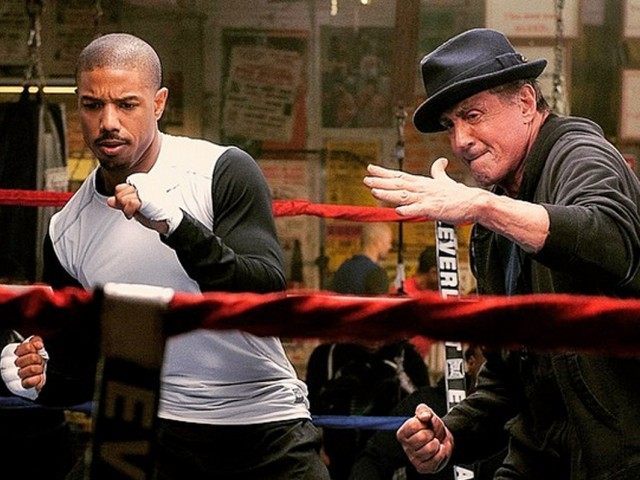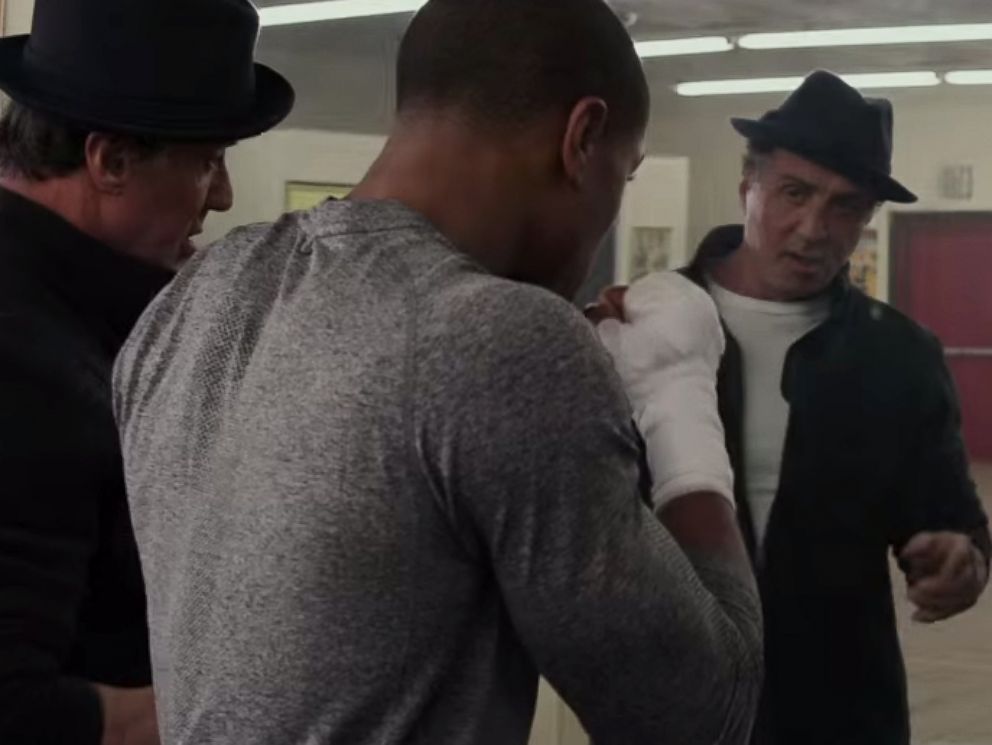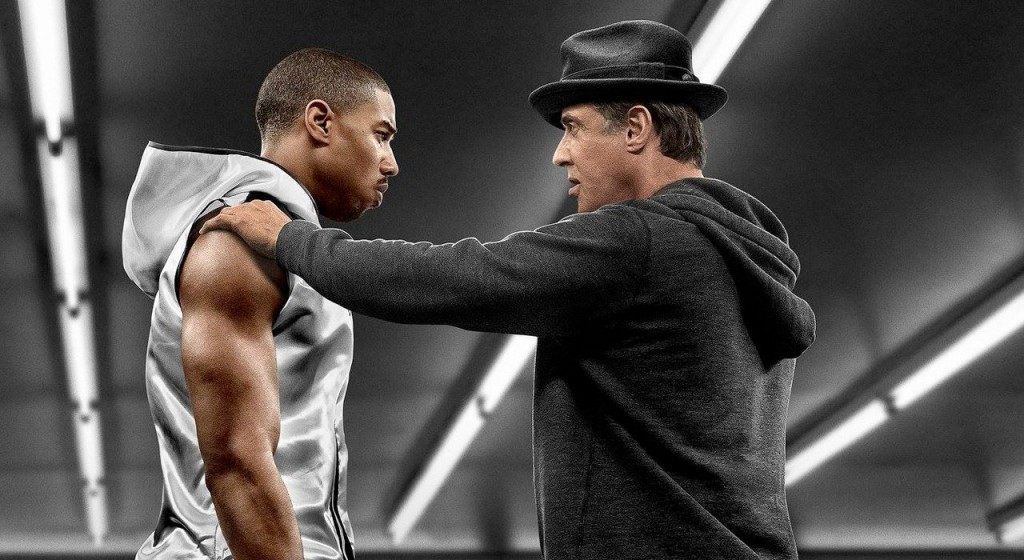This review is unforgivably late because I’m a bit of an agoraphobic.
Showing the kind of maturity and self-confidence we don’t see too often in Hollywood, or anyplace else these days, even after his 2006 triumph “Rocky Balboa,” Sylvester Stallone released the reins of the character that made him famous, turned them over to a young director named Ryan Coogler, and didn’t even participate (officially) in the writing of the screenplay. The result is “Creed,” a movie both Stallone and his iconic character Rocky Balboa richly deserve.
Coogler wisely updates the franchise without attempting to reboot or rewrite it. He also recognizes and pays tribute to the mythology of the previous six installments, and does so without edging into spell-breaking self-awareness. “Creed” works primarily as another chapter in the realistic evolution and journey of a character America has lived with and cherished for four decades.
As a means to make believable Rocky re-entering the ring at age 60 in “Rocky Balboa,” Stallone again proved his storytelling genius through the exploitation of the greedy carnival that often surrounds the boxing world. This was also a natural part of the evolution of a character in a lifelong quest to prove Mickey and the world wrong: “I ain’t no bum!” If you look back on the entire franchise, even the one dud “Rocky V,” thematically, it’s always been about a man doing what a man’s got to do.
Today, Stallone and Rocky are both pushing 70. In fact, not to freak you out, Stallone is 69, the exact same age Burgess Meredith was in “Rocky” (1976), the one that started it all. Obviously, there is just no way to put him back in the ring. So what do you do? This is a genre franchise, after all. There has to be a Big Fight. With his co-screenwriter Aaron Covington, Coogler cracked it: bring Rocky full circle; make him Mickey, the grizzled trainer looking for one last shot at the title.
Stallone might be a supporting character, but unlike Meredith, he is still the star. Nothing against “Creed,” which is wonderful and highly recommended, but it wouldn’t be much without Stallone. When he’s not on screen, most of your attention is distracted waiting for his return.
The film’s star is Michael B. Jordan, who plays Adonis, the illegitimate son of Apollo Creed, Rocky’s in-the-ring nemesis and out-of-the-ring best friend. Conceived in an extra-marital affair and abandoned, just before he was born, by his father’s premature death in “Rocky IV,” Adonis is a decent, educated young man. But he is also searching for his place in the world, and torn between a desire to be his father’s son while at the same time be his own man.
Using long takes (some of them brilliant — especially an entire fight), the same somber tone that made “Rocky Balboa” so special, and just enough notes of Bill Conti’s iconic “Rocky” score to make you want to leap out of your seat when it finally kicks in for real, Coogler makes what truly is “Rocky 7” all his own, and does so without coming off as dismissive towards the franchise’s 40 year history. Every single one of the previous six chapters gets a subtle nod. The touchstones are subtle but have an impact. This is perfectly handled.
ADDED: A commenter mentioned a key point I should have: This is a film about the importance of fathers. Adonis has a wonderful, loving mother but she’s not enough. He’s been deprived of nothing other than a father, and it has left a hole in him. This need is what draws him to boxing and ultimately Rocky, and the story is unapologetic in stressing this theme.
Already nominated for a Golden Globe, Stallone is almost certainly going to earn a supporting Oscar nomination, as well he should, if only for one unforgettable moment.
It takes place in a dirty locker room where Rocky once again finds himself at a crossroads. He’s alone, needing a moment to come to grips with a decision he’s just made. Without saying a word, Stallone puts it across: Rocky’s inconsolable loneliness in a life without his beloved Adrian, the realization that his legacy is now part of a wall filled with yellowing posters…
Those of us who have spent the last 40 years with this uncommonly decent man feel the overwhelming power of this moment every bit as acutely as he does; the emotional chasm created by everything time has taken away, the fear of what it means when an entire world moves on without you, the now-painful memories of a perfect time that no longer seems real — the time of Clubber Lang, Ivan Drago, the beauty of Rocky’s physical prime, and the promise of an entire life still left to live.
If you’ve forgotten how good of an actor Stallone is (I have not), you’ll never again forget. This is a moment you take home with you.
If that isn’t enough to convince you to see “Creed,” this might: At long last we learn who won the secret rubber match between Rocky and Apollo.
Follow John Nolte on Twitter @NolteNC



COMMENTS
Please let us know if you're having issues with commenting.